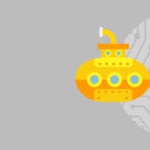Artificial intelligence brings The Beatles and Bach back to life
Computers already know how to paint, write poetry, compose music and come up with jokes without assistance. They aren’t able to break molds like the great masters, but machines can be creative, explains Ramón López de Mántaras in the book The Next Step. Exponential Life, which can be download for free on the website of BBVA’s OpenMind project.

Computers have been working as a canvas, paintbrush, or musical instrument for a while now, says the Director of the Spanish Artificial Intelligence Research Institute. However, in addition to serving as tools for art, “machines are now also capable of creating something that did not exist before by combining known things in a new way.” In other words, they can be creative.
Music and mathematics have always gotten along well. Synthesizers and computer music have existed for decades, so it isn’t surprising that the first artist machines have chosen this discipline.
Emmy (Experiments in Musical Intelligence) was one of the first artificial intelligence software capable of “tricking” the human ear. Its creator, David Cope, a researcher at the University of California, fed Emmy hundreds of Bach’s chorales and perfected the software until it was able to to compose melodies on its own - melodies that people could not distinguish from those written by the German genius. The key was teaching Emmy to break some rules. The following video is an example of this artistic machine’s work.
More recently, Sony’s Flow Machines project, financed by the European Research Council, has developed a neural network that has composed both cantatas like Bach and a Beatles-inspired song, “Daddy’s Car”. It did so based on more than 13,000 songs from pop groups and lyrics written by the composer, BenoitCarré, which the machine reorganized to its liking.
Together with “Daddy's Car”, Flow Machines has created a jazz song based on the work of the legendary Duke Ellington. Both songs are part of an album made by artificial intelligence that Sony plans to release shortly.
López de Mántaras admits that the machines are not aware of their accomplishments, but this doesn't mean that they aren't creative. To quote Stephen J. Gould, who compares the unconscious creation process with the evolution of species, “If creation requires a visionary creator, then how does blind evolution build such splendid new things like us?”
Music is only one example of what artificial intelligence is able to create. In his article, which you can download for free on OpenMind's website, López de Mántaras discusses other interesting examples of how AI is changing how art and literature are created .


